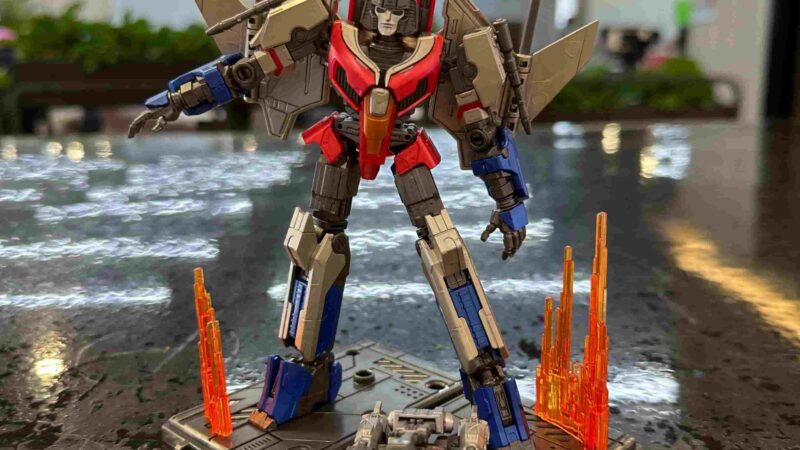The Art of Outdoor Transformation: A Landscape Contractor’s Rolle

A landscape contractor plays an important role in outdoor design. They are adept at transforming public spaces into stunning landscapes that balance sustainability, utility, and aesthetics. These professionals carefully plan and execute designs that blend hardscapes with softscapes to enhance the visual attractiveness of gardens, parks, and business locations.
Their expertise extends beyond aesthetics; they are essential in pest control, installing efficient irrigation systems, and employing sustainable practices like xeriscaping and rainwater collection.
As environmental concerns grow, the role of the landscape contractor is becoming increasingly vital in the Art of Outdoor Transformation: A Landscape Contractor’s Role, ensuring that outdoor spaces are not only visually captivating but also ecologically responsible and resilient, enriching the quality of life for communities in urban and rural settings alike.
A Landscape Contractor: Who Is It?
A landscape contractor is a specialist who plans, creates, and maintains outdoor areas to improve their use and aesthetic appeal. They install plants, trees, irrigation systems, and hardscaping elements like patios and walkways, ensuring adequate drainage. Whether for a large-scale commercial landscape or a small personal garden, their knowledge is crucial to making a concept a reality.
Essential Tasks for a Landscape Contractor
A landscape contractor’s varied duties require a blend of management, technical, and artistic abilities. The primary duties they do are listed below:
1. Designing Outdoor Spaces
While landscape architects often create the initial design concepts, landscape contractors bring these designs to life.
They work closely with clients to understand their needs and preferences, ensuring that the final product aligns with their vision.
They also ensure the designs are practical, considering the natural terrain, climate, and available resources. The contractor’s input is vital in selecting the suitable materials, plants, and features to thrive in the specific environment.
2. Installing Hardscapes and Softscapes
One of the primary tasks of a landscape contractor is the installation of both hardscapes and softscapes.
- Hardscapes:
This includes installing non-living elements such as patios, walkways, retaining walls, decks, and water features. These features enhance a space’s visual appeal and improve its functionality, providing places to walk, sit, or entertain guests. - Softscapes:
These involve the living components, such as planting trees, shrubs, flowers, and grass. Landscape contractors ensure that the right plants are chosen based on the soil type, climate, and client preferences. - 3. Irrigation Systems
Any landscape design must include effective water management, especially in places like Saudi Arabia, where water is valuable. Landscape contractors must construct irrigation systems that guarantee plants receive the ideal amount of water without wasting any. Rain sensors, drip irrigation, and sprinkler system installation are all included. IntelligentSmart irrigation systems have grown in popularity recently to improve water efficiency further. These systems enable landscapes to be watered depending on real-time meteorological data.
4. Pest Control and Maintenance
Keeping a landscape healthy requires constant attention to detail, including controlling pests, illnesses, and other possible hazards to plant life. Landscape contractors are responsible for using ecologically safe yet efficient pest control methods. They also take care of routine upkeep like mowing, trimming, fertilizing, and seasonal cleanups, in addition to pest control, to maintain the landscape’s finest appearance all year long.
5. Sustainability Practices
Sustainability is a developing trend in landscaping; landscape contractors are leading the charge. They employ environmentally friendly procedures like:
- Xeriscaping:
A landscaping technique that reduces or eliminates the need for irrigation by using drought-tolerant plants.
- Rainwater Harvesting:
Installing systems that capture and store rainwater for landscape use.
- Native Plant Selection:
It is opting for locally native plants that are more compatible with the ecology and use less water.
Implementing these sustainable methods may allow landscape contractors to lessen the environmental impact of outdoor areas while also improving their resilience and aesthetic appeal.
Why Landscape Contractors Are Essential
The role of a landscape contractor goes beyond just installing plants and paving stones. Their expertise is essential for several reasons:
1. Aesthetic Transformation
One of the most apparent contributions of a landscape contractor is the transformation of outdoor spaces from bare land into beautiful, functional areas. Whether creating a peaceful garden retreat or a bustling commercial plaza, their work enhances any property’s visual appeal and usability.
2. Increased Property Value
A well-maintained landscape can significantly increase property value. Landscape contractors design and build outdoor areas that look beautiful and add functional space for entertainment, relaxation, or work. This makes the property more attractive to potential buyers or clients.
3. Environmental Impact
Landscape contractors play a crucial role in promoting environmental sustainability. Proper plant selection, efficient irrigation systems, and eco-friendly materials help reduce water usage, minimize waste, and create landscapes that support local biodiversity. Using sustainable practices such as xeriscaping and rainwater harvesting further enhances the environmental benefits.
4. Creating Functional Spaces
Functionality is equally as important as aesthetics when it comes to landscaping. Features like outdoor kitchens, pathways, and seating areas are designed and installed by landscape professionals to improve the use of outdoor spaces. These modifications transform vacant yards into places where people can congregate, unwind, and enjoy the scenery.
5. Long-Term Maintenance
Creating a beautiful landscape is only the beginning. Landscape contractors provide ongoing maintenance services to ensure that the space continues to thrive. This includes regular care such as pruning, weeding, fertilizing, and more intensive services like replanting and pest control.
The Future of Landscaping
Sustainability and technology improvements will significantly impact landscaping in the future. Landscape contractors will increasingly use green technology and methods to lessen their ecological effects as environmental concerns continue to rise. The developments that will influence the industry’s future are energy-efficient landscape lighting, eco-friendly materials, and innovative irrigation systems. In addition, the need for landscape contractors to develop green spaces in cities will increase as metropolitan areas grow, making cities healthier and more habitable.
Final Word!
The art of outdoor transformation relies heavily on the skills and expertise of a landscape contractor.
Their ability to design, build, and maintain outdoor spaces ensures that landscapes are beautiful but also sustainable and functional. From irrigation systems that conserve water to sustainable planting practices that support local ecosystems, landscape contractors are essential to creating outdoor environments that enhance property value, improve quality of life, and contribute to environmental sustainability.
Whether in urban settings or rural areas, the role of a landscape contractor remains vital in shaping the spaces where we live, work, and relax.


